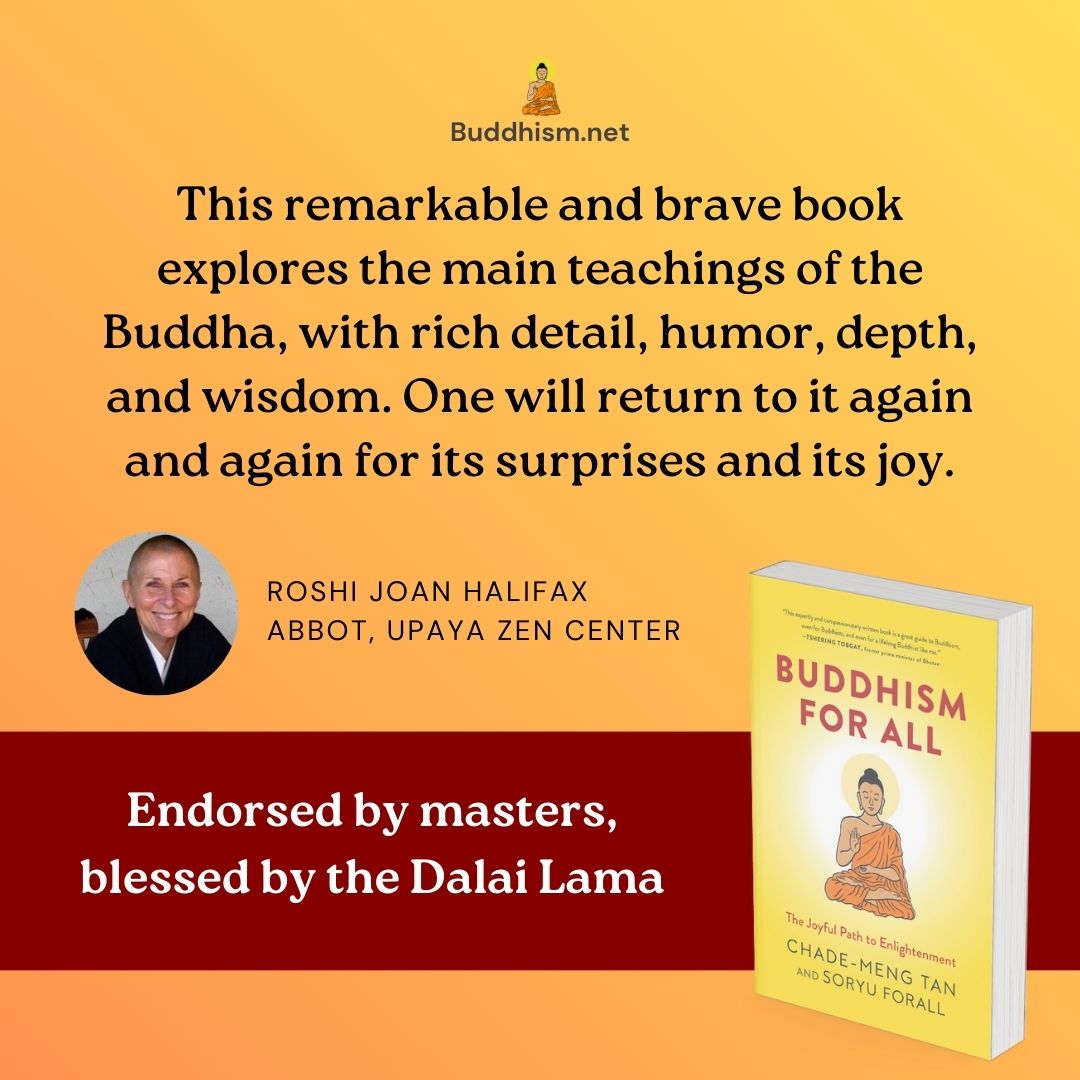
My dear friend and teacher Norman Fischer is quite unusual. He is a Zen master (Zen being a major school of Buddhism) who received many years of rigorous training under the tutelage of classically-trained Zen masters. Actually, Norman is not just any ordinary Zen master, he was a Zen abbot. Well, he was not even an ordinary Zen abbot, he was an abbot of the San Francisco Zen Center, one of the major Zen centers in the Western world. And he was, and still is, a practicing Jew. Imagine that, a classically trained Zen abbot of a major Zen center, and the entire time, he has been a practicing Jew who has never lost his Jewish identity or his Jewish faith. Very few Buddhists I know think there is anything wrong with having a practicing Jew as a major Zen abbot.

That level of inclusiveness in any religion is mind-blowing. I have met Christians, Hindus, Muslims, and Jews who identify themselves as practicing Buddhists while simultaneously a believer in and practitioner of their own religions. My friend and fellow Buddhist meditator, Dr. Stuart Lord, served as the president of Naropa University, a major Buddhist university in North America. He also held a Doctor of Ministry degree from the United Theological Seminary, served as a Christian chaplain, and thought of himself as both a Christian and a Buddhist. And, yes, there are atheist Buddhists too. In fact, I used to identify as one. These days, I joke that I am a full-time Buddhist and a part-time Christian.
I once saw a photograph of the Dalai Lama humbly and respectfully holding up a Christian cross to his forehead with his head lowered, as if in silent prayer. It was widely shared on social media (okay, fine, I was guilty of sharing it too), and I know of no Buddhist who was upset or offended. I myself was overjoyed.
It is not that Buddhism has no doctrinal differences with other religions, there certainly are obvious differences. For example, as you will find later in our series, the Buddha disagreed that there was a creator God, or an almighty God governing the cosmos. Of course, that also means that in Buddhism, there is no possibility of having any specific ethnic group favored as a “chosen people” by God, nor any caste system put in place by God.
However, the important thing is Buddhism has no interest in turning those disagreements into conflicts. Many of us are accustomed to thinking that a disagreement regarding doctrine is automatically equivalent to a fight, but Buddhism sees it differently. The Buddha taught his disciples not to cling on to any rites, rituals or views, and certainly not to start fights over those things. Therefore, the Buddhist attitude, which you will find deeply embedded on this site, is to state clearly and firmly what the Buddha’s teachings are, but to do so with open arms: inviting everybody to learn it, and to just take home whatever is useful and beneficial to them.
The inclusiveness of Buddhism extends to a neutrality regarding religious beliefs, and in this sense, we may speak of it as secular. The Buddha’s teachings do not require belief in or reliance on any deities. The core teachings taught by the Buddha relate to the nature of mind and its liberation from suffering, and the core practices are mental training methods for stilling the mind, developing insight and cultivating positive qualities such as joy and kindness.
Those training methods taught by the Buddha are extremely secular. For example, as part of attentional training, the Buddha taught his students to attend to the breath. Nobody has to believe in one or more gods (nor disbelieve in gods, for that matter) to practice placing attention on the breath. In fact, the Buddha did not even require belief in mystical objects such as “energy” or “chakras” and such. The Buddha kept the set of objects for mental training to things that can be empirically understood in our daily lives, such as the body, the breath, and mental and emotional states, not anything we have to believe in (like chakras).
The degree at which Buddhism is secular, inclusive, and comfortable with science makes it, in my eyes, the most awesome religion. But how does a religion get to be this way? Isn’t “secular religion” an oxymoron? Almost funny (like, “ha ha” funny)? The answer lies at the basis upon which Buddhism was founded.
While every other major religion was founded based on belief in, and worship of, one or more deities, Buddhism was founded entirely on the basis of complete liberation from suffering. Deities are outside of oneself, so one cannot know everything about them. But whether you are suffering is known to you. There is no speculation required. The Buddha successfully pioneered the path to gaining complete freedom from suffering through deep mental cultivation, careful investigation, and gaining total understanding into the nature of suffering. He taught that path, which he simply named “the teaching and discipline” (Dhamma-vinaya), and that is what we know today as Buddhism. The Buddha said emphatically,
What I teach is suffering and the cessation of suffering. [1]
Buddhism is so non-reliant on deities and so discouraging of blind faith that there are even widely respected Buddhist masters, for example Dzogchen Ponlop Rinpoche, who argue that Buddhism isn’t a religion at all. [2] Buddhist monk and author Ajahn Brahm says, “Buddhism is not a belief system. It is a science founded on objective observation, i.e. meditation.” [3] Vietnamese Zen master Thich Nhat Hanh says:
There is a misconception that Buddhism is a religion, and that you worship Buddha. Buddhism is a practice, like yoga. You can be a Christian and practice Buddhism. I met a Catholic priest who lives in a Buddhist monastery in France. He told me that Buddhism makes him a better Christian. I love that. [4]
Maybe that’s how Buddhism gets to be the most awesome religion: by being not.
Jokes aside, the question of whether or not Buddhism is a religion is too nuanced for a straight yes or no answer. You will see later in this series that Buddhism is not completely free from mystical elements involving gods, supernatural powers, and other mysterious stuff. You will also find that Buddhism can contain enough religious features to be legitimately thought of as a religion. However, it’s important to note that the practices taught by the Buddha do not have to rely on anything mystical, which means you can accept or reject those mystical elements in Buddhism and the practices for ending suffering will still work for you. Whether Buddhism is a religion is a topic we will explore in some detail later, but for now, what I can say with certainty is that because the teachings of the Buddha are non-reliant on deities and mystical objects, and solidly grounded in empirical investigation, they are free from most trappings of religion. And that, to me, is most freaking awesome.
Activities
References
[1] Majjhima Nikāya 22.
[2] Dzogchen Ponlop Rinpoche’s argument is at: https://www.lionsroar.com/is-buddhism-a-religion-november-2013/
[3] Ajahn Brahmavaṃso Mahāthera, “Buddhism, the Only Real Science,” Lanka Daily News (Colombo), March 28, 2007.
[4] Robin Sacredfire, The Ultimate Book of Powerful Quotations: 510 Quotes about Wisdom, Love and Success. 22 Lions Bookstore (2018)

